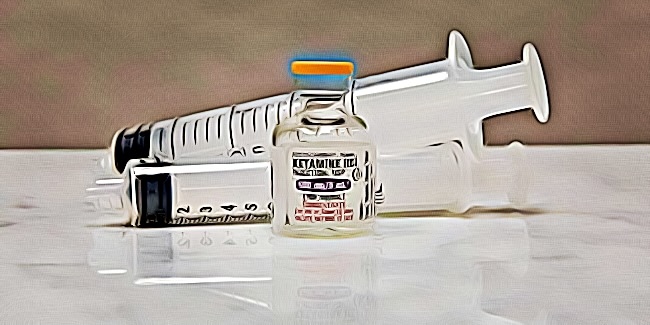How Long Does the Party Drug Ketamine Last in the Human Body?
The effects of ketamine in the human body last depending on the dosage taken. It usually lasts between 30 minutes to an hour but could take longer through higher dosages. However, the effects can manifest differently depending on the method used to take it.
For example, if the drug gets administered intravenously, the results will show up approximately after four minutes. Meanwhile, if people snort it, it will take at least 15 minutes to take effect. But for those who will inject it directly into the bloodstream, the results should be instantaneous.
What is Ketamine?
Ketamine is a drug that has been used in medicine for almost a century. It is an anesthetic and an antidepressant. The drug was used to anesthetize soldiers and patients during the Vietnam War. It is one of the most famous anesthetics used in medicine today.
As psychiatric medication, it is used to treat depression. But recently, it has become a recreational drug because of its hallucinogenic and dissociative effects. When taken in large doses, it can cause people to feel detached from their bodies and become delirious. It is why it is also known as Special K.
It’s available in pill or powder form and can be injected through an intravenous line or snorted through the nose. People can also smoke it or put it in their eyes, and when used as a date-rape drug, it’s often added to drinks to make it undetectable. People who abuse it don’t usually feel pain and are detached from their bodies.
How Does Ketamine Work?
The mechanism of ketamine is not fully understood. However, it is known to affect the brain’s neurotransmitters. These include dopamine and glutamate. These two neurotransmitters are critical in the human brain. They help regulate the brain’s perception, emotion, and cognition. Because of this, ketamine could cause changes in the way people think and feel.
What is Ketamine For?
Ketamine is used in medicine as an anesthetic. It is used in medical procedures, particularly in children, when other anesthetics are inappropriate. It is also used to treat pain and help people with post-traumatic stress disorder (PTSD) or bipolar disorder. PTSD is a mental health condition that can occur after someone experiences or witnesses a traumatic event. Ketamine has shown promise in treating people with PTSD by helping to reduce their symptoms.
Bipolar disorder is a mental health condition that causes extreme mood changes. People with bipolar disorder can have manic episodes, during which they feel pleased and energized, and depressive episodes, during which they think unfortunate and hopeless. Ketamine has shown promise in treating people with bipolar disorder by helping reduce their symptoms’ severity.
The Effects of Ketamine
Ketamine is a medication that can have several different effects on the body, depending on the dose taken. At low doses, ketamine can cause feelings of relaxation and euphoria. At higher doses, it can cause hallucinations and out-of-body experiences. Ketamine is a Schedule III controlled substance in the United States, which means it has a potential for abuse and dependence. Ketamine should only be used under the supervision of a healthcare provider.
Ketamine is thought to work by binding to a receptor in the brain known as the NMDA receptor. This receptor is involved in regulating pain, learning, and memory. By binding to this receptor, ketamine is thought to reduce the activity of specific brain circuits, which can lead to the feeling of dissociation and hallucinations. Ketamine is also believed to increase the levels of a brain chemical known as glutamate. Glutamate is involved in the regulation of mood and cognition. By increasing the levels of glutamate, ketamine is thought to produce its antidepressant effects.
The antidepressant effects of ketamine are almost immediate. In one study, people with treatment-resistant depression who were given a single dose of ketamine felt better within two hours. The effects of ketamine can last for up to two weeks. The results of ketamine are not just limited to the treatment of depression. Ketamine has also been effective in treating other mental health conditions, such as anxiety, post-traumatic stress disorder (PTSD), and obsessive-compulsive disorder (OCD).
The Risks of Using Ketamine
The short-term effects of ketamine are similar to those of other dissociative drugs like PCP and DXM. People who use ketamine for recreational purposes often describe feeling detached from their bodies, experiencing hallucinations, and feeling out of control. These effects can last for several hours.
The long-term effects of ketamine are not well understood. Some research has shown that people who use ketamine regularly may experience problems with learning and memory and personality changes. Some people who use ketamine may develop a condition known as cystitis, which can cause pain and bleeding in the bladder.

What Are the Signs of Ketamine Abuse?
The signs of ketamine abuse can vary depending on how much of the drug a person takes, how often they take it, and how it is used. People who abuse ketamine may become agitated, aggressive, or become confused and disoriented. People who take ketamine may also experience visual hallucinations.
Is Ketamine Addictive?
Ketamine is not considered an addictive drug. However, people who use it regularly may develop a tolerance to its effects. It means they need to take larger doses of the drug to get the same impact. People who use ketamine may also develop a psychological dependence on it. It means that they may feel that they need to keep using the drug to cope with everyday life.
What is Ketamine Overdose?
A ketamine overdose occurs when a person takes more of the drug than the body can process. Overdosing on ketamine can be dangerous and even life-threatening. Symptoms of a ketamine overdose include high blood pressure, irregular heartbeat, seizures, and coma. If you or someone you know has overdosed on ketamine, it is essential to seek medical help immediately. Overdoses can cause a person to stop breathing and can lead to death. If you think someone has overdosed on ketamine, call 911 directly.
What Are the Short-Term Effects of Ketamine Use?
The short-term effects of ketamine use can vary depending on the amount of the drug used and how it is used. People who use ketamine may feel detached from their body and environment and experience visual hallucinations. People who use ketamine may also become agitated and aggressive.
What Are the Long-Term Effects of Ketamine Use?
The long-term effects of ketamine use are not well understood. Some research has shown that people who use ketamine regularly may experience problems with learning and memory and personality changes. Some people who use ketamine may develop a condition known as cystitis, which can cause pain and bleeding in the bladder.
Best Practices in Using Ketamine
Considering ketamine, knowing the potential risks and side effects is essential. Make sure you are using the drug safely and responsibly. Do not use ketamine if you are pregnant or breastfeeding. If you have a history of mental illness, heart disease, or liver disease, you should speak with your doctor before using ketamine.
Do not use ketamine if you are taking other drugs that may interact with it, such as antidepressants, antipsychotics, or sedatives. Never use ketamine with alcohol or other drugs. Do not drive or operate heavy machinery while under the influence of ketamine. Start with a low dose and increase gradually to minimize the risk of side effects. Do not use ketamine more often than recommended.
Conclusion
Ketamine can be a safe and effective medication when used correctly. It is essential to follow your doctor’s instructions and to start with a low dose. If you experience side effects, stop using ketamine and seek medical attention.

